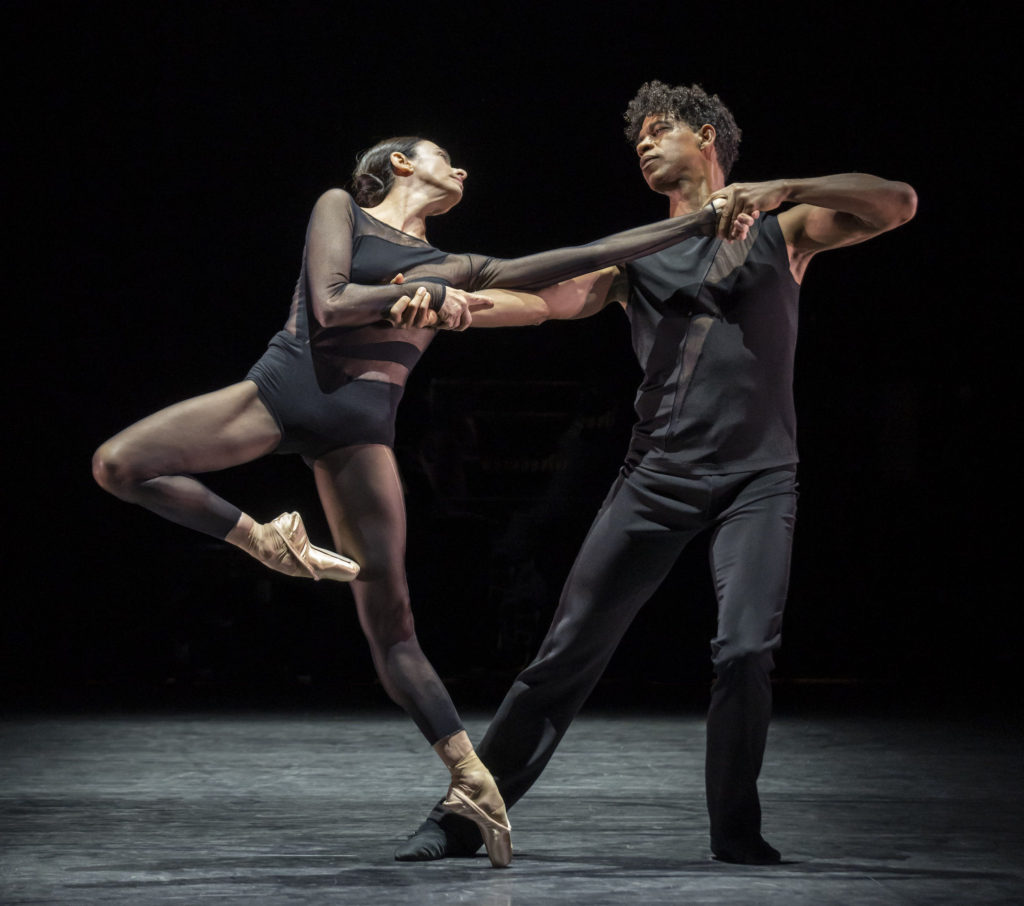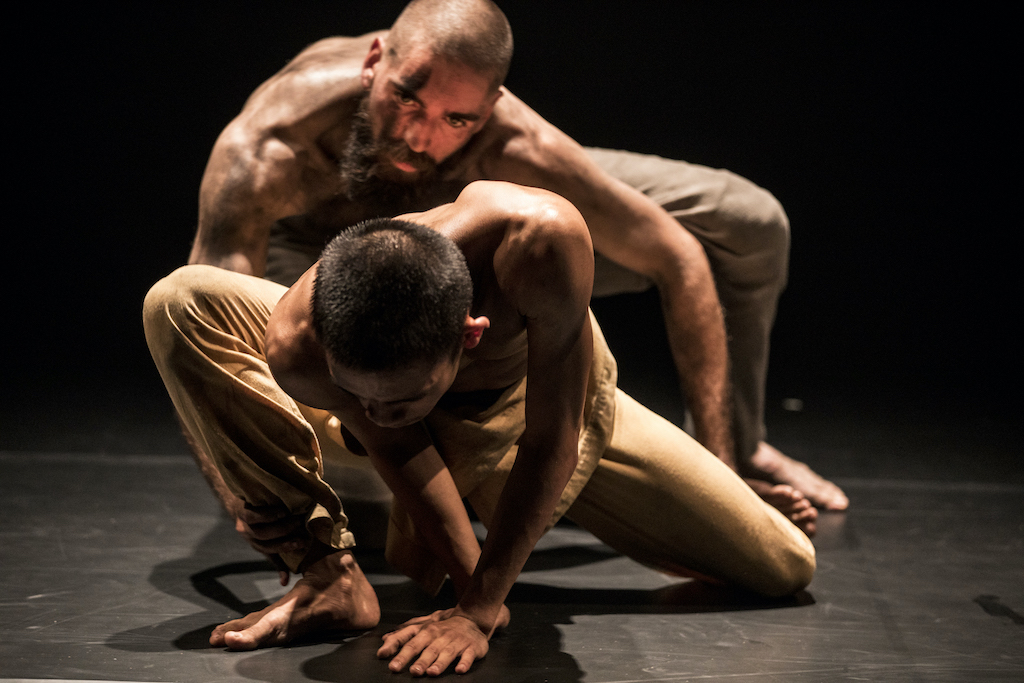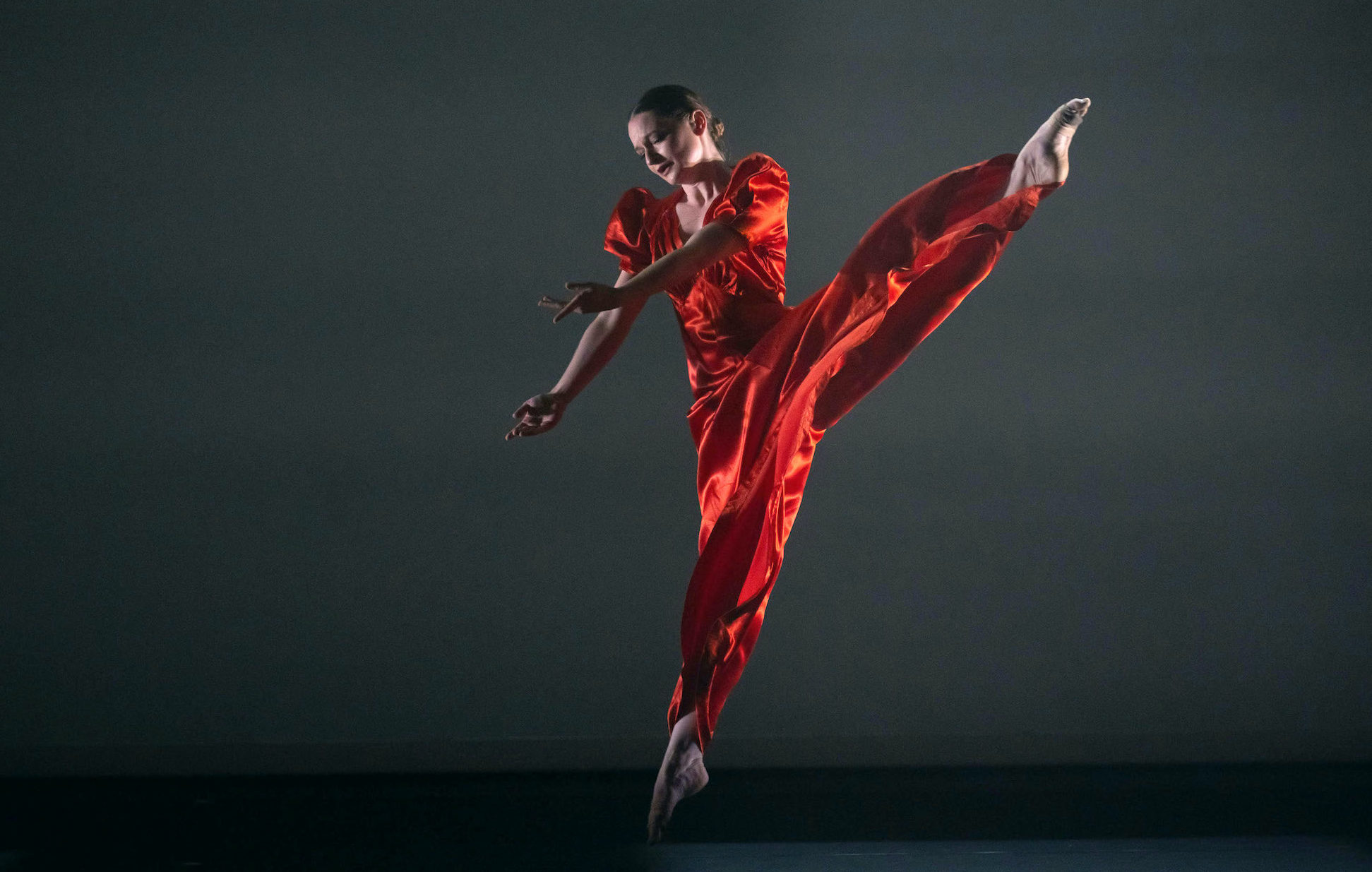London: A ravishing duet by superstars, and other wonders
- Home
- City Reports 2020 - 2023
- London: A ravishing duet by superstars, and other wonders

By Sanjoy Roy
Many recent London performances were not strictly recent at all, but rather programs that had been on hold through several waves of COVID restrictions, and revived in the autumn while the going looked good (not before time: a new wave has put the dampers on again). These works emerged into a different world from the one in which they had been conceived, sometimes in doppelgänger form: one incarnation onstage, another filmed for the online platforms that larger institutions have increasingly been investing in (witness Sadler’s Wells Theatre’s new Digital Stage, the expanding Royal Opera House Stream, or English National Ballet’s On Demand).
Such was the case with Birmingham Royal Ballet’s delayed visit to Sadler’s Wells Theatre, marking its second program under the directorship of former dance superstar Carlos Acosta. For the London performances, Acosta (48) performed a special duet with fellow superstar Alessandra Ferri (58), created for them by Spanish choreographer Goyo Montero as a prologue to his 2017 work Chacona. This was no celebrity turn though, but rather a darkly ravishing duet entirely in keeping with the solemn geometries of this large-scale work. Acosta and Ferri are indeed often kept apart by long chains of dancers; the stars melt away unobtrusively to let the company move into the body of the piece, where they echo the stark chords and runs of the accompanying Bach Partita for solo violin — also played in striking arrangements for piano and for guitar. It’s a haunting and strangely timeless experience.

By contrast, Miguel Altunaga’s City of a Thousand Trades was designed for a time and a place, marking the 30th anniversary of the company’s move to Birmingham. A playful homage to the city’s industrial heritage (there’s a lot of heaving and hurling), it gains considerably from Altunaga’s pell-mell energy, though its many effects — poles, platforms, poems — are sometimes piled pretty high. Better that, though, than the demure neoclassicism of Imminent by London-based Brazilian Daniela Cardim. Nothing wrong with politeness as such, but tacked onto the theme of climate breakdown it looks less like activist art than greenwash in good taste.
Interesting, then, that Will Tuckett’s Now and Then for Ballet Black at the Linbury Theatre — a gentle, elegantly neoclassical chamber work — seems to lay its finger so effectively upon the dark anxieties and distant hopes of our times. Tuckett has been exploring poetry as a partner to dance for some time, and here turns to the work of American feminist Adrienne Rich — spare, intimate verses that nevertheless invoke big themes of war and love. Rather than illustrate her words, Tuckett’s staging becomes itself a kind of poetry, a careful composition of motion, lighting, voice over, and violin that moves effortlessly between portraiture — four sinister men come to take a prisoner, figures eddying with eagerness as they send invisible love letters to each other — and sensory effect: shadows aslant faces, eddies of disquiet beneath serene surfaces, the slow bowing of a violin holding space for measured steps. It’s an introspective, exquisitely crafted work that lets stillness and silence speak as eloquently as action and expression.
The second work on this double bill (which was also presented online by the Barbican Centre, in beautifully made film adaptations) was The Waiting Game by company dancer and choreographer Mthuthuzeli November — a far more theatrical work in every sense, with three short, distinct acts that hinge upon a door frame that is wheeled about the stage. November starts crouched and tormented by voices which recite his wake-work-eat-sleep routine, while Pierrot-like figures emerge through the doorway, like sinister unseen forces. In the second scene, impish Sayaka Ichikawa comes through the door, coaxing him out of his ennui with impish games of pluck and peck. Finally, November crosses the threshold to find himself in a land of showtime, with backing dancers boogieing to Etta James. As dance it’s a fun finish; as drama, quite a long shot.

Premiered in Germany in 2019, Akram Khan’s Outwitting the Devil finally made it to London as part of a short season of his works at Sadler’s Wells Theatre to mark his company’s 20th anniversary. Khan had burst onto the dance scene as an astonishing performer, with a magnetic stage presence and a flair for merging his double training in kathak and contemporary dance. As sometimes happens with preternaturally gifted dancers, his choreography for others took time before it began to stand free from his own physical distinctiveness. Outwitting the Devil, though, gives full rein to a sextet of different dancers, all amazing in their own way, from 60-something multitalented performer François Testory and bharata natyam dancer Mythili Prakash, to physical powerhouse Luke Jessop and lizard-lithe James Vu Anh Phan.
To watch them is to be riveted, yet frustratingly the piece dissipates their talents through a lack not of lighting (though they are often in near darkness) but of direction. There’s a story happening here — apparently drawn from the Gilgamesh epic — but it’s buried so deep as to be almost untraceable. The effect is more mystifying than mythic, and leaves its marvellous dancers floundering in the tidal surges of Vincenzo Lamagna’s histrionic score.
What a contrast was Afternoon Conversations with Dancers, presented by Yorke Dance Project at the Linbury Theatre. It was part of a tribute program to the great Robert Cohan, whose extraordinary late flowering of choreographic creativity — right up until his death in January 2020, aged 95 — Yorke Dance did so much to enable. Developed over Zoom during lockdown and first presented on film, it showed another set of accomplished and highly distinctive dancers in a series of overlapping solos. With minimal trappings and unobtrusive sound, each one became its own small wonder, achieved through the shape, action, and phrasing of the human body. Dance, indeed.

